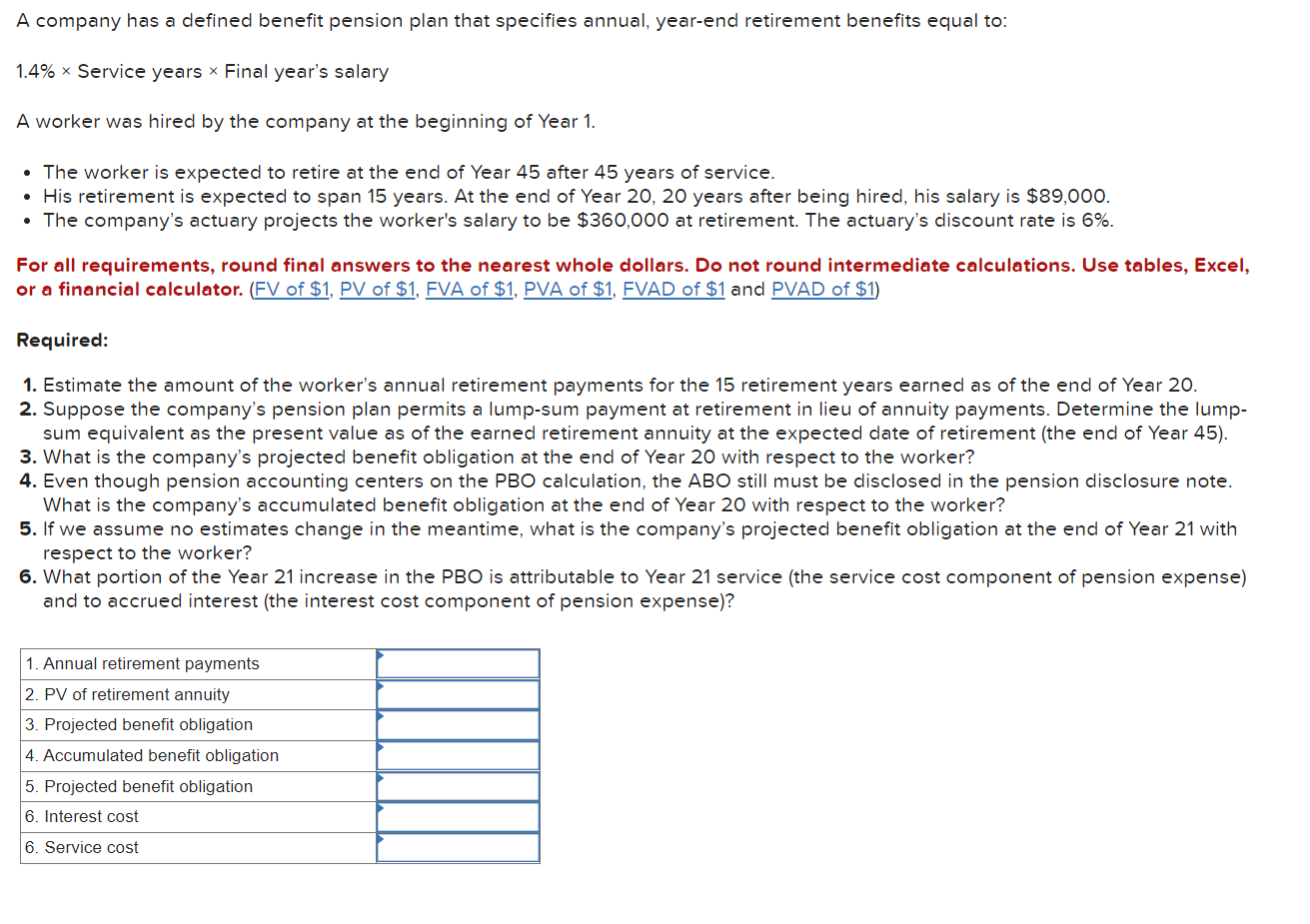Answered step by step
Verified Expert Solution
Question
1 Approved Answer
A company has a defined benefit pension plan that specifies annual, year-end retirement benefits equal to: 1.4% Service years x Final year's salary A

A company has a defined benefit pension plan that specifies annual, year-end retirement benefits equal to: 1.4% Service years x Final year's salary A worker was hired by the company at the beginning of Year 1. The worker is expected to retire at the end of Year 45 after 45 years of service. His retirement is expected to span 15 years. At the end of Year 20, 20 years after being hired, his salary is $89,000. The company's actuary projects the worker's salary to be $360,000 at retirement. The actuary's discount rate is 6%. For all requirements, round final answers to the nearest whole dollars. Do not round intermediate calculations. Use tables, Excel, or a financial calculator. (FV of $1, PV of $1, FVA of $1, PVA of $1, FVAD of $1 and PVAD of $1) Required: 1. Estimate the amount of the worker's annual retirement payments for the 15 retirement years earned as of the end of Year 20. 2. Suppose the company's pension plan permits a lump-sum payment at retirement in lieu of annuity payments. Determine the lump- sum equivalent as the present value as of the earned retirement annuity at the expected date of retirement (the end of Year 45). 3. What is the company's projected benefit obligation at the end of Year 20 with respect to the worker? 4. Even though pension accounting centers on the PBO calculation, the ABO still must be disclosed in the pension disclosure note. What is the company's accumulated benefit obligation at the end of Year 20 with respect to the worker? 5. If we assume no estimates change in the meantime, what is the company's projected benefit obligation at the end of Year 21 with respect to the worker? 6. What portion of the Year 21 increase in the PBO is attributable to Year 21 service (the service cost component of pension expense) and to accrued interest (the interest cost component of pension expense)? 1. Annual retirement payments 2. PV of retirement annuity 3. Projected benefit obligation 4. Accumulated benefit obligation 5. Projected benefit obligation 6. Interest cost 6. Service cost
Step by Step Solution
There are 3 Steps involved in it
Step: 1

Get Instant Access to Expert-Tailored Solutions
See step-by-step solutions with expert insights and AI powered tools for academic success
Step: 2

Step: 3

Ace Your Homework with AI
Get the answers you need in no time with our AI-driven, step-by-step assistance
Get Started


